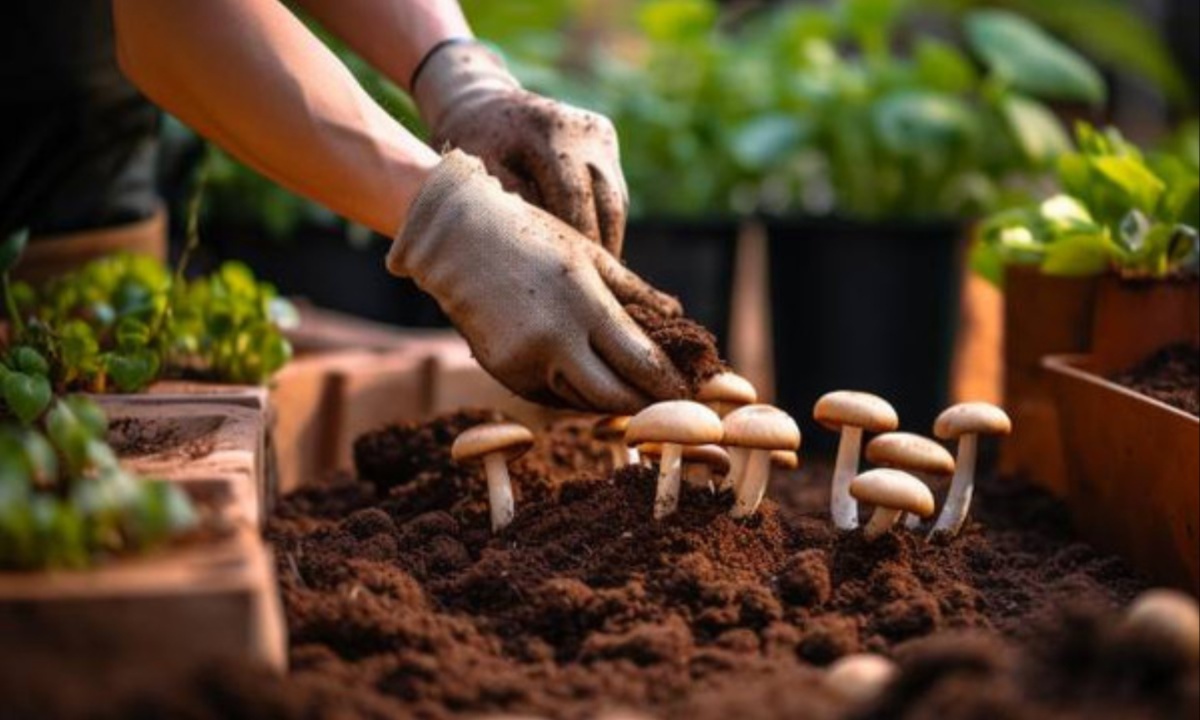Modern global agriculture generates immense quantities of organic waste, including 14 billion tons of crop straw and 125 million tons of livestock manure annually. Traditional composting practices struggle to manage this waste effectively due to low efficiency in breaking down lignocellulose and the persistence of harmful pathogens and antibiotic resistance genes (ARGs).
The situation is worsened by the routine use of antibiotics, such as oxytetracycline, in livestock farming, which facilitates the spread of ARGs and pathogens into soil and crops, posing serious environmental and agricultural risks.
Closed-Loop System Recycles Waste with Mushrooms for Sustainable Agriculture and Soil Health
In response to these challenges, researchers at the Kunming Institute of Botany, CAS, have developed a closed-loop microbial conversion system. This system integrates crop straw, livestock manure, and spent mushroom substrates (SMS) using a circular model that enhances organic matter recycling and supports sustainable crop production.
The rare edible mushroom Stropharia rugosoannulata, native to Yunnan, was chosen for its high efficiency in organic degradation and its symbiotic potential in this Livestock-Crop-Mushroom (LCM) circular system.

The team evaluated a novel pathway involving co-composting of straw and cow manure, followed by mushroom cultivation and the reuse of SMS. They compared traditional compost (straw + manure) with SMS-enhanced compost to understand how the latter affects oat plant growth and the rhizosphere microecology. This design allowed researchers to assess the overall regulatory benefits of LCM composts on plant health and soil biology, showing how integrating mushroom substrates can transform composting efficiency.
Enhanced Composting with SMS Improves Soil Health, Reduces Pathogens, and Boosts Sustainability
The SMS-based composting system offers substantial advantages over traditional methods. It enhances microbial diversity and structure, notably boosting beneficial microbes and fungi that suppress pathogens. This shift contributes to improved plant root development and nutrient uptake. Furthermore, SMS compost significantly lowers the levels of oxytetracycline, pathogens, and ARGs in both soil and plants, making it a cleaner, safer alternative for agricultural use.
Utilizing advanced multi-omics tools, including metagenomics and microbial sequencing, the study demonstrates how LCM biofertilizers influence plant-associated microbial communities from root to seed. This breakthrough provides a comprehensive understanding of microbiological dynamics in sustainable agriculture. Ultimately, the research presents a transformative strategy for recycling organic farm waste while reducing environmental risks, paving the way for a more resilient and eco-friendly agricultural model.


